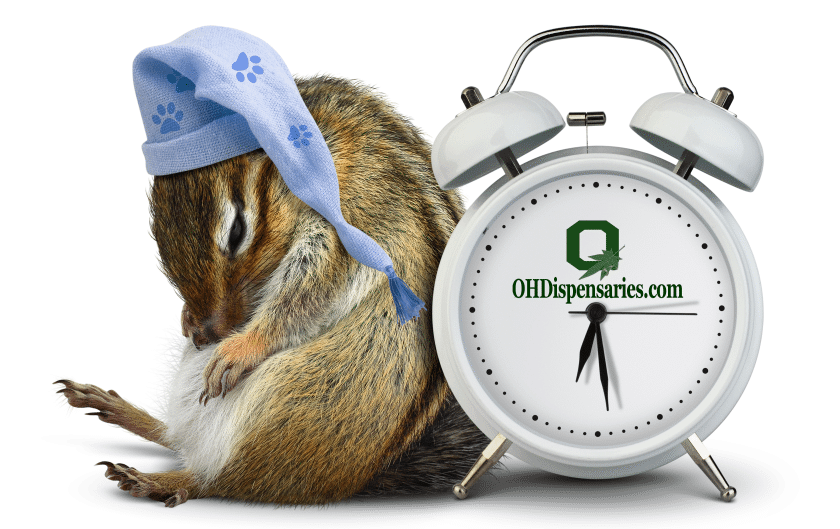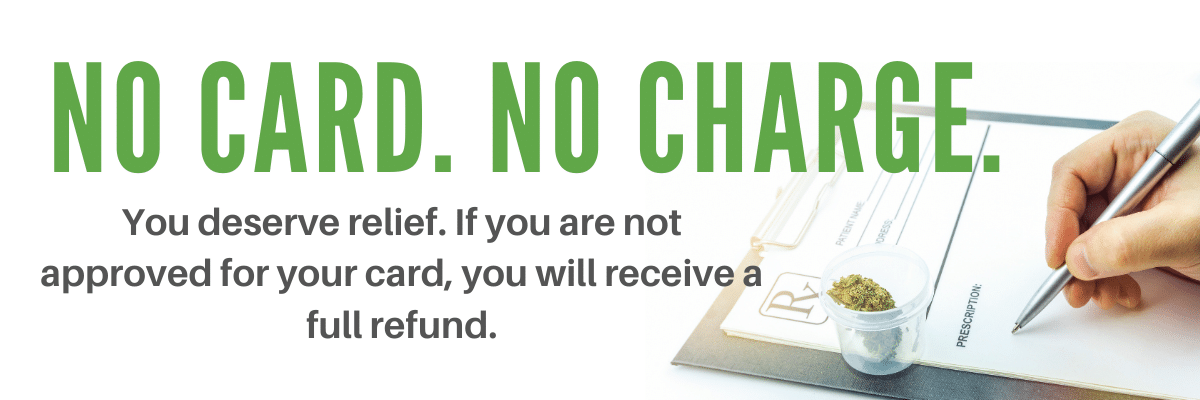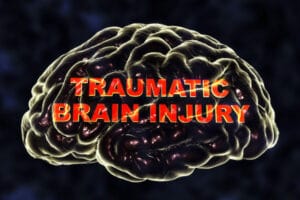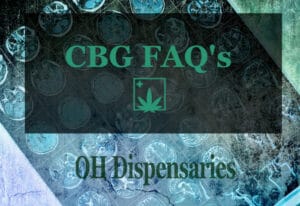

Sleep Better with Medical Marijuana: Benefits and Strains
Whether or not medical marijuana can help unwilling night owls to get a good night’s sleep depends on three things — the reason that the patient is having trouble getting to sleep, how they use cannabis, and what strain or formula is being used. In this post, we’ll discuss what causes sleep disorders and insomnia and how to properly use medical marijuana to help get some zees.
Having Trouble Sleeping
Having a little trouble sleeping, are you? Perhaps you’re wondering if you could use medical marijuana to treat insomnia. As with almost every medical condition, the answer is, yes and no. Yes, if medical marijuana treats the underlying cause of sleeplessness. And no, if you use the wrong stuff in the wrong way. In fact, using medical marijuana improperly can very well do more harm than good.
Getting proper rest is just as important to health as breathing and eating. Studies have shown that the brain that never sleeps will eventually become psychotic and produce all sorts of difficulties with motor skills, cognition, and memory.
Unfortunately, sleepless, in turn, can bring on any number of other medical conditions. The patient can get into a cycle of sleeplessness making them ill, and the illness, in turn, making it more difficult to sleep. It becomes a downward spiral from which the patient might never recover.
There are some over-the-counter and prescription medications available for treating insomnia. However, these drugs often come with side effects and might cause dependence. For many, these drugs induce a morning hangover. And stopping their use can result in nightmares and worsening insomnia.
Is there a safer solution? Yes, but it’s not quite as simple (usually) as popping a couple of pills to knock you out. We’re speaking of course of medical marijuana. It’s non-toxic and non-addictive. And there are even non-intoxicating strains of cannabis for those who would rather avoid marijuana’s psychotropic effects.
You might get lucky and find that popping a couple of gummie bears or cannabis oil capsules before bed does the trick without producing any unwanted side effects. But if you’re using medical marijuana willy nilly to help you sleep, you might be causing problems rather than solving them.
Causes Of Sleep Disorders
As we mentioned earlier, one of the most important factors in how one uses marijuana to affect sleep is what’s causing the patient to lose sleep in the first place. Sleep problems are generally caused by some other medical condition. Some of the more common conditions that can rob us of our sleep include chronic or acute pain, stress and anxiety in its various forms, and physical issues such as sleep apnea.
The good news is that countless medical marijuana users and numerous scientific studies have shown that marijuana can be effective — in certain cases — at treating these issues.
Let’s start by talking about some of the active compounds found in marijuana and cannabis oil.
THC versus CBD for Sleep
The most abundant active compounds found in marijuana are known as cannabinoids, which literally means components of cannabis. And the two most common cannabinoids found in cannabis are delta-9 tetrahydrocannabinol, aka THC, and cannabidiol, or CBD. There are other cannabinoids as well such as CBG, delta-8 THC, and many more.
These cannabinoids were first identified near the middle of the 20th Century. But at the time, it wasn’t clear how they affected the brain and body. Some years later, scientists discovered the system in the human body with which cannabinoids interact. They named it, appropriately, the endogenous cannabinoid system, or the endocannabinoid system, or simply, the ECS.
It was also discovered that our bodies produce their own natural cannabinoid compounds. These were called endogenous cannabinoids, or endocannabinoids — cannabinoids produced by the body. Those produced in cannabis are technically known as phytocannabinoids.
Interestingly, the phytocannabinoids found in marijuana can interact with and modulate the ECS just as happens with our own endocannabinoids. Phytocannabinoids also have properties that work outside of the ECS. Cannabinoids have anti-inflammatory, antioxidant, antibiotic, and antiviral properties.
The most important thing to remember about marijuana is that the two most common cannabinoids, CBD and THC, interact with two totally different branches of the ECS. While THC mostly acts on cannabinoid receptors in the brain, CBD offers whole-body effects, and without the high that comes with THC.
This is important for a couple of reasons. The first is that the use of THC can actually increase anxiety unless used in very small doses. Furthermore, THC has a tendency to suppress what is known as REM sleep. This is an important stage of sleep in which we experience dreams.
So, using the wrong cannabis products in the wrong way is generally not a good idea.
Using medical marijuana to treat sleep disorders
There exists a vast array of medical marijuana products including dried herb for smoking, cooking, and vaping. Smoking is seldom recommended by doctors as it can increase blood pressure. Another option is cannabis oil in tincture or capsules. There are also cannabinoid-infused pain creams. And most medical marijuana dispensaries also carry a variety of cannabis-infused edibles — a common choice for insomniacs as the effects tend to last longer.
Some of these products contain only purified THC and/or CBD, while others contain whole plant extracts including an array of compounds known as terpenes which are also known to have effects on anxiety and pain.
Some recommended marijuana strains for sleep disorders include Granddaddy Purple, Tahoe OG Kush, God’s Gift, Northern Lights, and Afghan Kush.
The local dispensary might not carry these strains. However, if you let your budtender know what’s causing your sleeplessness they will often recommend a marijuana strain or cannabis-infused product that has been used successfully in the quest for a good night’s sleep.
How to treat nighttime anxiety with medical marijuana
Have you ever had trouble falling asleep because of that voice in your head? It’s making you replay something you did wrong, or worry about something that might happen in the future. Some unfortunate people experience this anxiety-induced insomnia night after night.
Well, fortunately, one of marijuana’s superpowers is its ability to help reduce anxiety. But keep in mind what we mentioned above. Excessive use of THC can actually make anxiety and paranoia worse. For this reason, if it’s anxiety that’s keeping you awake at night, it’s usually best to stick with low-THC, high-CBD strains and cannabis products.
There is an exception to the rule. There are also forms of anxiety that manifest as nightmares. Waking up from nightmares can take its toll on the kind of deep sleep required for good health.
Nightmares are generally caused by some sort of traumatic events or fears. One anxiety-related condition in particular that can cause nightmares is post-traumatic stress disorder, or PTSD. This condition is usually the result of some kind of trauma. It can manifest as panic attacks during the day and also cause nightmares.
If you have to choose between losing some REM sleep or suffering from nightmares, then some level of THC might be in order. However, CBD is the cannabinoid that is usually responsible for reducing anxiety and helping people relax.
So, again, if an anxiety patient is not having nightmares, then a high-CBD, low-THC product would be ideal as it would have less of an effect on REM sleep. On the other hand, if the patient is experiencing nightmares, then a product with a good balance of THC and CBD is generally recommended.
How to treat nighttime pain with medical marijuana
Chronic and acute pain are infamous culprits that can rob us of our sleep. Chronic pain is any form of constant pain that the patient has to deal with day after day. Acute pain is generally caused by something like an accident or an infection. The pain diminishes as the patient heals. Both of these types of pain are the result of the body’s inflammatory response.
There is also neuropathic pain which is not caused by inflammation. This is generally a symptom of diabetes or neural degenerative issues such as ALS. The disease causes damage to nerve endings of appendages. These damaged nerves result in false pain signals.
The good news is that patients with both types of pain — inflammatory and neuropathic — are successfully using marijuana to relieve or reduce their pain. Cannabinoids are known to reduce inflammation, to modulate pain signals, and to protect nerves and other tissues from damage.
As to the balance of THC and CBD, it can take some trial and error to find the right formula. The best advice we can give is for patients to seek out others who are suffering from the same type of pain and learn which strains and products are working for them. Also, patients can learn a lot by talking to an expert budtender at a local medical marijuana dispensary.
It might make sense for some patients to keep at least two different products or strains on hand — one for daytime use and one for nighttime use.
Can you treat sleep apnea with medical marijuana?
Obstructive sleep apnea is a breathing disorder. When the back of the throat relaxes during sleep it can obstruct the airway. As you can imagine this greatly interferes with the patient’s sleep.
Whether or not marijuana can be used to treat sleep apnea is still under debate. Several studies have suggested that cannabis can help. One study, conducted on rats with sleep apnea in 2013, showed that medical marijuana produced a 32 percent decrease in apnea events.
However, the official position of the American Academy of Sleep Medicine is that marijuana should not be used to treat sleep apnea (or any other sleep disorder). In this article, the author quotes the organization’s president saying: “Until there is sufficient scientific evidence of safety and efficacy, neither marijuana nor synthetic medical cannabis should be used for the treatment of sleep apnea.”
Again, the best advice we can give is to talk to other sleep apnea patients who have tried to treat their condition with medical marijuana.
How to get a medical marijuana card in Ohio...

Get or Renew Your Ohio Medical Marijuana Card
For Ohio residents, we make it easy to connect with a certified recommending doctor to get or renew your Medical Marijuana Card.
To get started, simply fill out the patient registration form below, press submit, and your on your way to a MedCard telemedicine doctors appointment online. See if you qualify today!

Patient Registration Form









